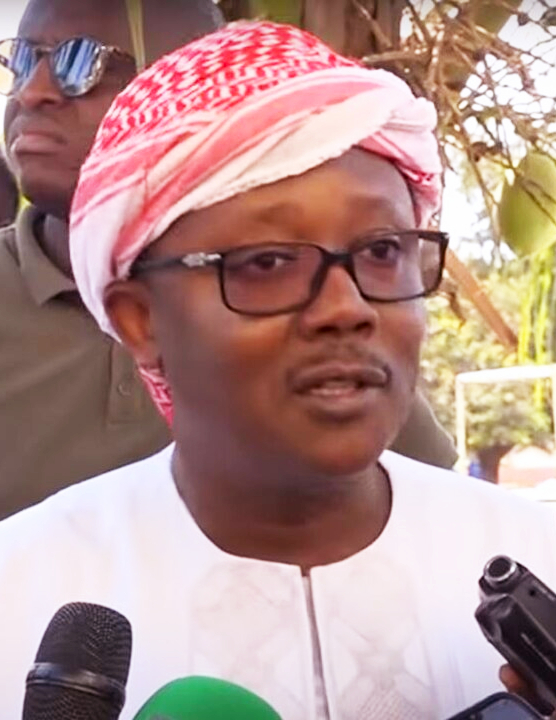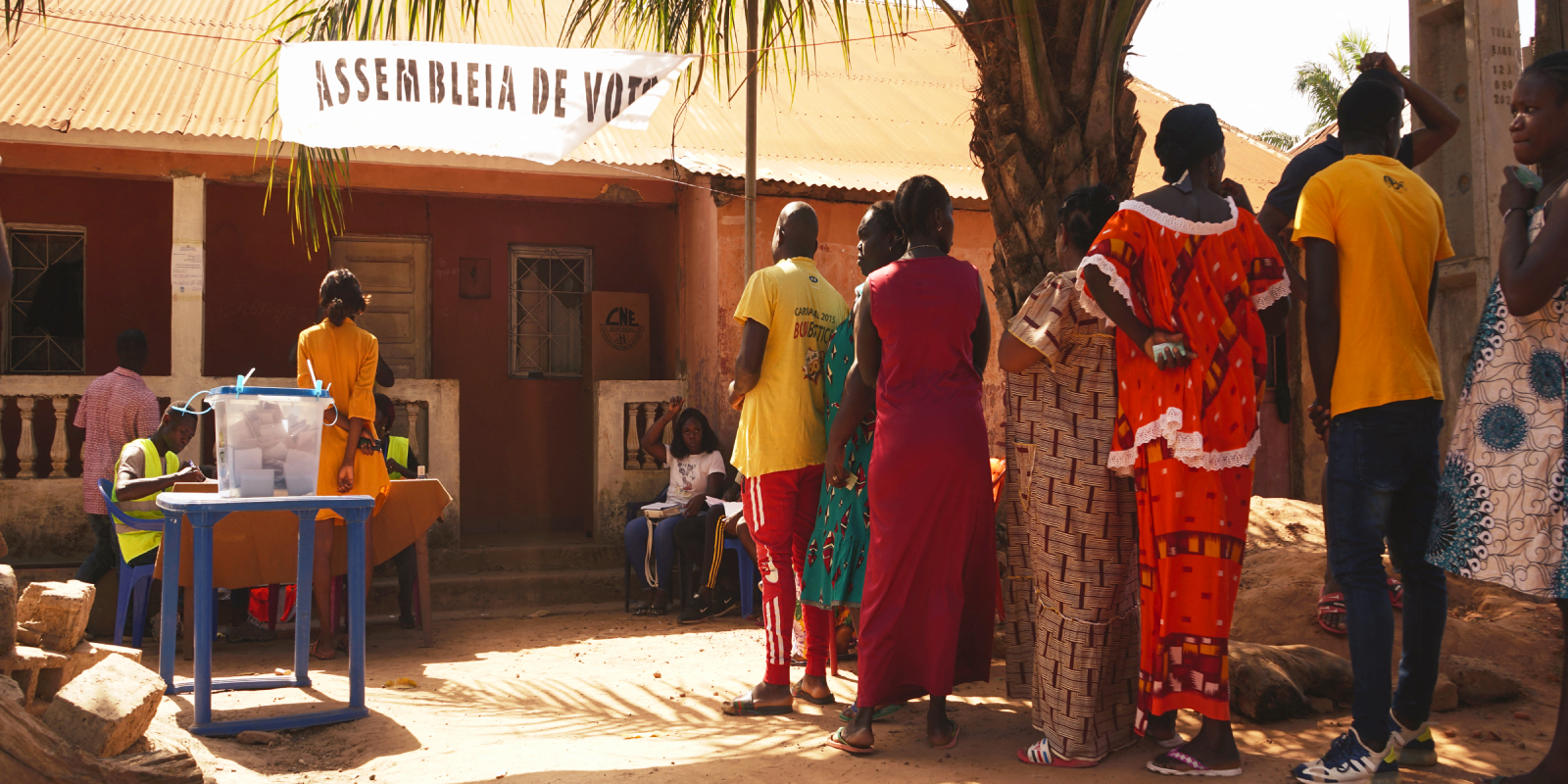Guinea-Bissau faces a turbulent electoral environment in 2024—a familiar place for this West African coastal country of 2 million people that has long skidded from one crisis to the next.
Guinea-Bissau has experienced four coups and more than a dozen attempted coups while enduring 23 years of direct or military government since independence from Portugal in 1973. President Úmaro Sissoco Embaló has dismissed Parliament twice in 2 years (including in December 2023) alleging coup attempts, which has contributed to government paralysis.
The bigger story in Guinea-Bissau in 2024 will be about how to build and sustain momentum for a stable system of government and institutional guardrails against the abuse of power.
While the leading political parties have not officially put forward their candidates, the 2024 election could likely involve a rematch of the 2019 poll, where President Embaló gained 53.5 percent of the vote versus Domingos Simões Pereira’s 46.5 percent.
There are numerous layers of Guinea-Bissau’s instability.
At the heart of the governance dysfunction are competing visions of the role of the executive in Guinea-Bissau’s semi-presidential system. Under this arrangement, the president serves as the head of state and the prime minister, selected by parliament, is the head of government—choosing ministers and setting the day-to-day agenda. This system was adopted in the 1993 Constitution to strengthen the separation of powers between the executive, parliament, and judiciary. This was a response to the 19-year rule of President João Bernardo Vieira, who concentrated power within the executive, facilitating abuses of power and impunity.
Speaker of Parliament Pereira and his Plataforma Aliança Inclusiva–Terra Ranka (PAI-TR)—a coalition of small parties partnering with the liberation party stalwart, Partido Africano da Independência da Guiné e Cabo Verde, PAIGC—put forward constitutional reforms in the June 2023 legislative elections to clarify the powers between the president and prime minister. Embaló, a product of the old state-centric presidential system that is close to the military, was instead hoping to secure a parliamentary majority to push through his revanchist vision of presidential power in a new constitution. PAI-TR emerged victorious with a 54-48 majority in Parliament. The coalition also has the support of another 12 MPs from aligned parties.

President Úmaro Sissoco Embaló. (Photo: DakarActu TV)
Embaló has responded to this setback by creating a shadow cabinet of “presidential advisors,” comprised of former ministers and security officials with close ties to the military and police. Embaló’s dissolutions of the parliament and temporary dismissal in December 2023 of the prime minister, Geraldo Martins, have been others means by which he has tried to sideline the legislature and exercise executive authority.
Governmental authority in Guinea-Bissau often equates to control of patronage. This runs the gamut of narcotics trafficking, illegal logging, control of procurement contracts, and diversion of tax revenues. Guinea-Bissau has long been viewed as the prime cocaine trafficking hub in West Africa for Latin American drug cartels. Indications are that narcotics smuggling has increased under Embaló with the last major drug seizure being in 2019. Guinea-Bissau regularly ranks as one of the most corrupt countries in the world on Transparency International’s Corruption Perceptions Index.
This legacy of patronage has been deeply intertwined with the security services. The military and police have historically been used by political leaders to protect their political interests. This politicization has, in turn, incentivized military leaders to use their official positions to pursue their financial interests and, at times, mount coups against their political masters. This has been another key layer in Guinea-Bissau’s volatility.
Guinea-Bissau’s persistent instability has impacted the quality of life for its citizens with the country lagging behind the continent in per capita income, mortality rates, and educational attainment. Improving health and education services were a key part of the PAI-TR’s winning campaign platform in the 2023 legislative elections and will likely feature centrally in the 2024 presidential elections as well.

(Photo: AFP/Samba Balde)
The 2024 vote, therefore, has significant implications for not only the policy priorities of Guinea-Bissau but also for its model of government and system of checks and balances.
Despite its long legacy of political instability, Guinea-Bissau also has a track record of relatively competitive elections and alternations of power. This owes, in part, to the professional composition of the National Electoral Commission (NEC). The NEC Executive Secretariat is comprised of magistrates nominated from the Superior Council of the Judiciary and elected by two-thirds of parliament for a 4-year term. Dissolutions of parliament prevent filling of vacant posts within the Executive Secretariat, hampering election preparations.
Civil society actors continue to push for reforms that would institutionalize more transparency and oversight.
Guinea-Bissau’s resilient civil society has been a glue that helps the country weather the many bouts of political storms that it faces. Despite the numerous setbacks, civil society actors continue to push for reforms that would institutionalize more transparency and oversight of public funds and public policymaking so that it serves citizen interests.
Their active role in the elections will be a critical feature of the 2024 elections.
Guinea-Bissau has also benefited over the years from active regional and international engagements. The Economic Community of West African States led by Senegal, the Community of Portuguese Language Countries, the European Union, Portugal, France, and the International Monetary Fund have all sustained engagements to help stabilize Guinea-Bissau. Among other initiatives, this has entailed the deployment of extended peace operations, financial support, and serving as third-party negotiators.
Aside from the electoral tallies, the bigger electoral story in Guinea-Bissau in 2024 will be about how to build and sustain momentum for a stable system of government and institutional guardrails against the abuse of power.


 Guinea-Bissau: December
Guinea-Bissau: December